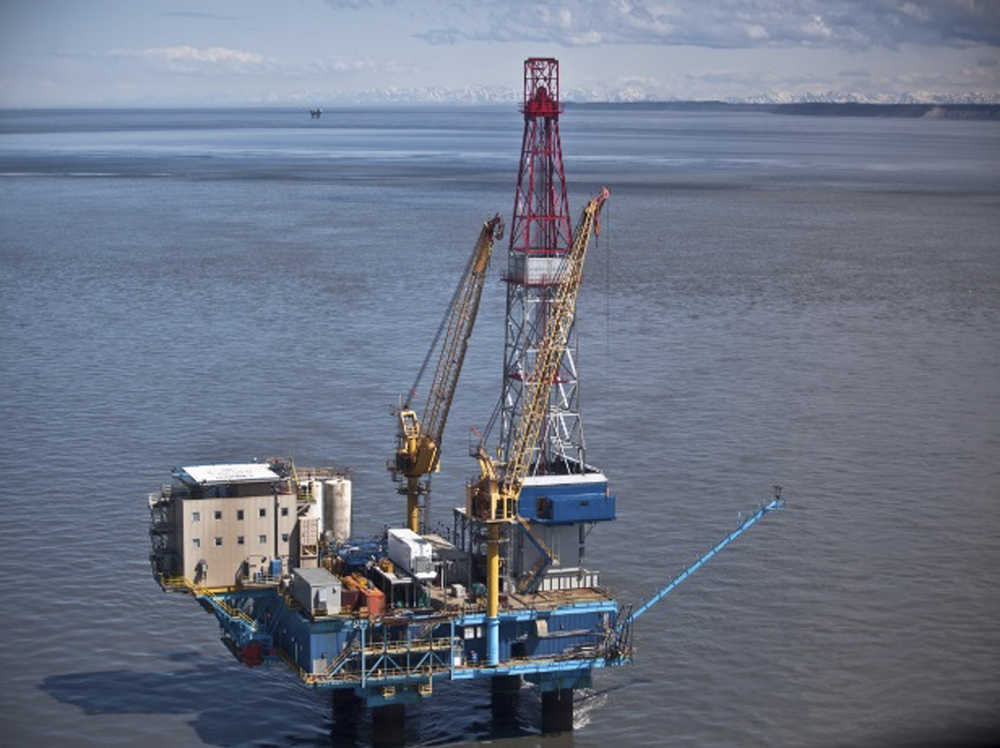Miller Energy Resources Inc., two of its executives and an accountant have been charged by the U.S. Securities and Exchange Commission with inflating the values of company’s Alaska oil and gas properties by more than $400 million.
The Securities and Exchange commission, SEC, on Thursday announced charges alleging that the company’s former Chief Financial Officer Paul W. Boyd and its most recent Chief Executive Officer David Hall inflated the values to the point that the former penny-stock company was eventually listed on the New York Stock Exchange.
The Houston-based company manages its operations from Anchorage with some staff in the Lower 48.
The SEC additionally charged Carlton Vogt, a certified public accountant from New York, for his role in auditing the company and failing to notice irregularities or comply with accounting standards, according to the SEC order.
Miller Energy acquired its Alaska properties for $2.25 million in 2009, according to the SEC’s Division of Enforcement; it later reported them at a value of $480 million.
According to the release, Boyd relied on a reserve report that did not reflect the fair value of the company assets. He is also alleged to have double-counted $110 million in assets already included in the reserve report.
Hall, who has been the CEO of Miller Energy’s Alaska subsidiary Cook Inlet Energy since 2009 and more recently Miller Energy’s Chief Operating Officer since 2013, is alleged to have knowingly understated the company’s expenses. He denied the charges, however.
“I think the SEC got the facts wrong on this one,” he said. “We’ll continue to work with them and to ultimately prove that point. I’m confident and can say that I never falsified anything. We strive to be honest and full of integrity.”
Hall said he is no longer the company’s CEO but did not explain why or how he departed from the position.
“I’m not at liberty to talk about my position with the company,” he said.
Boyd was Miller Energy’s Chief Financial Officer and Treasurer until 2011 before becoming the director of risk management.
As of 2014 he is no longer employed by the company, according to the SEC filing.
Vogt was a partner at the now-defunct Sherb & Co., LLP which performed a 2010 audit of Miller Energy’s financial statements that the SEC labeled as deficient.
It alleges that the firm falsely stated that the audit was performed in accordance with generally accepted accounting principals, according to the SEC filing.
Miller Energy Resources, founded in 1967 went public via a merger in 1996, according to SEC documents, but it consistently traded below one dollar per share before it acquired its Alaska assets in 2009.
The SEC investigators called Miller’s Alaska acquisitions, the single most important event in the company’s nearly 40-year history as it then raised millions in equity and listed its stock on the New York Stock Exchange.
The company’s shares reached a price high of nearly $9 in 2013, but it was delisted from the New York Stock Exchange on July 30 for failing to maintain an average market capitalization of $15 million.
The company owns Cook Inlet Energy, LLC and has assets and oil and gas operations in Cook Inlet in the North Fork and West MacArthur fields, and on the North Slope of Alaska through a 67.5 percent stake in the Badami field this past December.
Its operations are managed from Anchorage.
According to the SEC charges, the company and Hall requested, and then improperly used, a reserve report prepared by an independent petroleum engineer firm.
While those reports are generally used to estimate future oil and gas productions, the numbers used in those reports are not considered accurate estimates of fair market value, according to the SEC filing.
Hall said the accusation that he or anyone else at the company overvalued its Alaska assets was not accurate.
“Not only did we think that the values are correct, but we did have another third party company validate those estimates,” he said.
SEC investigators alleged that Vogt failed to perform his audit of the company with any of the rigor required by generally accepted accounting principals, despite knowing that there were significant flaws in the way that Miller Energy had been reporting its earnings.
“Vogt knew at the time of the accounting for the acquisition that Miller Energy had insufficient accounting staff and that any accounting was suspect,” investigators wrote in the SEC filing.
Investigators cited emails from Vogt to Miller Energy’s management indicating that the company’s accounting staff was deficient and that Boyd cut corners on the accounting documentation.
“Furthermore, Vogt stated that Hall’s modeling of cash flows and expenses was ‘concerning’ because there was no one taking a detailed look at his estimated,” investigators wrote in the SEC filing. Investigators allege that Vogt filed an audit report that contained an unqualified opinion.
Boyd and Hall are alleged to have violated anti-fraud provisions in both U.S. securities laws and the SEC’s anti-fraud rule while the company is alleged to have violated books, record-keeping and internal control requirements.
The SEC is seeking cease-and-desist orders and civil monetary penalties in addition to the return of ill-gotten gains from the company, Boyd, and Hall. It is also seeking to bar the two from serving as public company officers, directors or in public company accounting, according to the release.
The investigation will be scheduled for a public hearing before an administrative law judge, each of those charged in the case are required to respond to the allegations within 20 days.
Reach Rashah McChesney at rashah.mcchesney@peninsulaclarion.com

